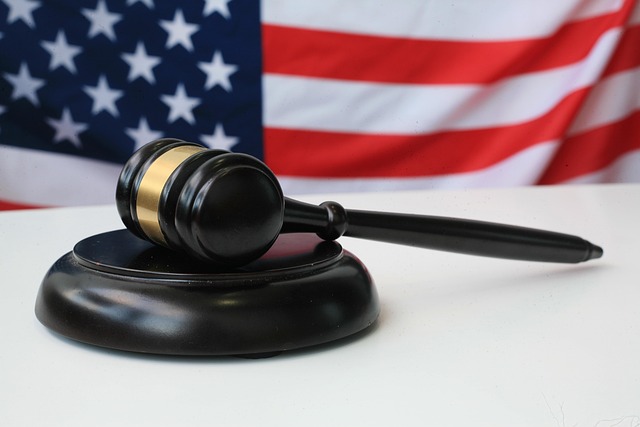Navigating plea bargains in felony cases is a strategic approach for legal professionals to manage litigation risk and secure favorable outcomes. By negotiating with prosecutors, defendants can reduce or dismiss charges, avoiding full trial costs and penalties. Skilled defense attorneys, through careful planning and understanding of legal complexities, aim for complete charge dismissal while ensuring justice. This process, crucial in complex cases, fosters harmony between legal, corporate, and political entities.
In today’s complex legal landscape, effectively managing litigation risk is paramount. This article delves into the intricate world of felony case management, focusing on a strategic approach through plea bargains. We explore the nuances of understanding felony cases, the role of plea bargains in shaping legal strategies, and best practices for navigating pre-trial negotiations. Additionally, we discuss post-agreement considerations, including managing potential reconsideration risks. By grasping these concepts, professionals can confidently navigate the challenges of felony cases, ultimately mitigating strategic pitfalls.
- Understanding Felony Cases and Their Complexity
- The Role of Plea Bargains in Legal Strategy
- Navigating Risks: Pre-Trial Plea Negotiations
- Post-Agreement: Managing Potential Reconsideration
Understanding Felony Cases and Their Complexity
Felony cases present a unique set of challenges for litigation risk management due to their inherent complexity and potential long-lasting impact on both corporate and individual clients. These cases often involve serious crimes, which can lead to severe penalties, including lengthy prison sentences and substantial fines. Navigating plea bargains in felony cases is a critical aspect of managing these risks effectively.
By understanding the dynamics of plea bargaining, legal professionals can achieve extraordinary results for their clients. This strategy involves negotiating with prosecutors to reduce or dismiss charges in exchange for a guilty plea. A successful plea bargain not only secures a more favorable outcome but also helps in avoiding the time and costs associated with a full trial. Achieving a complete dismissal of all charges is possible through meticulous planning, robust legal representation, and a strategic approach, ensuring the best possible resolution for corporate and individual clients alike.
The Role of Plea Bargains in Legal Strategy
Navigating plea bargains in felony cases is a strategic art that forms a significant aspect of legal strategy. In many jurisdictions, plea bargains are a common way to resolve criminal charges, offering both defendants and prosecutors a mutually beneficial outcome. This process involves the defendant agreeing to plead guilty or no contest in exchange for reduced charges or a lighter sentence. While this may seem like a concession for the accused, it’s a calculated move that can lead to winning challenging defense verdicts, especially in white-collar defense cases.
A skilled defense attorney plays a crucial role in negotiating these plea bargains, aiming for complete dismissal of all charges when possible. By understanding the complexities of the law and leveraging their client’s best interests, they can navigate this labyrinthine process effectively. The ultimate goal is to secure the best possible outcome for the defendant while ensuring justice is served.
Navigating Risks: Pre-Trial Plea Negotiations
Navigating risks is a crucial aspect of litigation risk management, especially when dealing with felony cases. Pre-trial plea negotiations play a pivotal role in this process, offering a strategic avenue to mitigate potential liabilities and achieve favorable outcomes. By engaging in open dialogue with prosecutors, defense attorneys can uncover opportunities for plea bargains, which often prove beneficial for both parties involved. This approach allows for the negotiation of reduced charges or sentences, thereby lessening the overall litigation risk.
An experienced legal team adept at navigating plea bargains in felony cases can secure extraordinary results, demonstrating their invaluable expertise and unparalleled track record. This ability to forge mutually agreeable solutions is particularly impactful in complex criminal cases, fostering a harmonious relationship between philanthropic and political communities. The success of these negotiations often lies in the nuanced understanding of the law and the unique circumstances surrounding each case, ensuring an unprecedented level of protection against potential litigation risks.
Post-Agreement: Managing Potential Reconsideration
After reaching a plea bargain in felony cases, successful litigation risk management involves actively managing potential reconsideration. This critical phase requires meticulous attention to detail and strategic planning. Defendants must understand that accepting a plea deal doesn’t necessarily end their legal woes; it merely changes the battlefront. The court can still revise its decision, especially if new evidence surfaces or if there are significant changes in circumstances.
Navigating plea bargains in felony cases demands a delicate balance between securing favorable outcomes and being prepared for unforeseen challenges. White-collar defense attorneys play a pivotal role here, guiding their clients through the complexities. By anticipating potential reconsiderations and having robust strategies in place, legal teams can achieve extraordinary results, ensuring that their clients’ interests are protected, even post-agreement. This proactive approach is key to mitigating litigation risks and achieving positive outcomes beyond the plea bargain stage.
Effective litigation risk management in felony cases involves a strategic navigation through complex legal landscapes. By understanding the intricacies of felony proceedings and leveraging plea bargains as a crucial tool, legal professionals can mitigate risks and achieve favorable outcomes. Pre-trial negotiations and post-agreement management are essential aspects of this process, ensuring that clients receive the best possible representation while minimizing potential challenges. Navigating plea bargains in felony cases requires a balanced approach to protect both the defendant’s interests and the overall strategic goals of the legal team.






